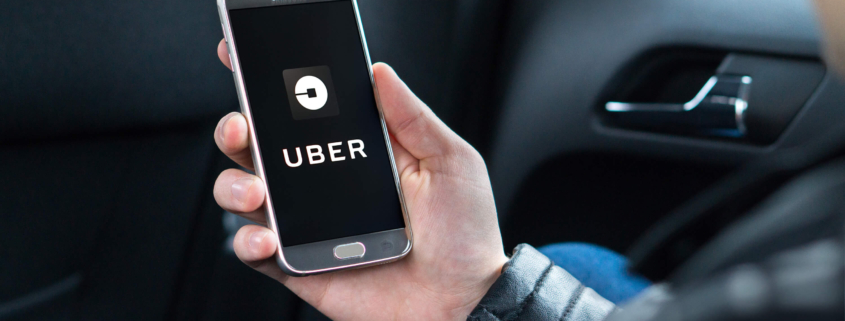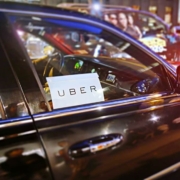Who is Liable for a Ridesharing Accident?
In modern-day living, ridesharing may be one of the greatest conveniences. Rather than search for taxi numbers and try to determine if they are available and hoping that your fare is not too high, you can simply get an instant ride price and pick up time on your phone. However, new technology presents new questions and legal issues.
A significant issue faced by ridesharing in its initial days was the question of vehicle accidents. Ridesharing drivers do have to submit to background checks, yet accidents occur, and even the most responsible driver could find themselves embroiled in a crash.
Liable Parties
It is important to understand the parties that may be involved in your claim before you start figuring out who is actually at fault for the wreck. Potential parties include:
- The rideshare vehicle’s driver
- The other motorist involved in the accident
- The automobile manufacturer
- Vehicle part manufacturer
- Repair garage
- The government, if the accident occurred due to poor signage or improperly maintained roads
- Lyft/Uber, if they did not verify driver’s information and records through comprehensive background checks
Alabama Ridesharing Accident Liability
A new statewide ridesharing law took effect in AL in 2018. Before the implementation of this law, many rideshare providers (known as network companies or TNCs under state laws) had operated in certain cities in accordance with city regulations.
According to the new law, the Alabama Public Service Commission (PSC) regulates rideshare companies. This Commission comprises three elected members, two associate commissioners, and a president. The PSC is responsible for the issuance of permits and implementation of discrimination and substance abuse policies.
In addition, ridesharing driver candidates face more thorough criminal background and driving record check requirements. Due to this new law, most city regulations are being phased out.
If you are involved in a wreck caused by a rideshare driver, the insurance plan that applies is contingent on a few factors. The most important factors are whether the driver is logged into a company network and whether they have a passenger in the vehicle or are driving to pick up a passenger. In general, based on the network status of the driver, insurance obligations are determined as follows:
- Not logged in: The rideshare company driver’s personal vehicle insurance limits apply
- Logged in, but no passenger requests: The rideshare company may offer excess coverage, primarily intended to cover any overages above the driver’s personal limit; for instance, Uber offers $50,000 per individual and $50,000 per incident in such cases
- Transporting or picking up a passenger(s): Lyft and Uber have $1 million liability and $1 million uninsured plans when drivers are actively involved in transporting passengers
The above policies are crucial for both rideshare passengers who are injured as well as occupants of other vehicles involved in Lyft or Uber collisions.
But the caveat is not to assume that simply because Lyft and Uber have $1 million policies, they’ll be eager or willing to pay out most claims. Rideshare companies commonly try to deny liability by claiming that their drivers are independent contractors and not employees.
What Types of Insurance do Rideshare Drivers have?
Most rideshare company drivers are covered under their personal vehicle insurance policy if the company’s policy does not fully cover them. Under AL law, the mandatory minimum limits for liability coverage are $25,000 for bodily harm per person, 50,000 for bodily injury per accident, and $25,000 for property damage. Some drivers may choose to maintain higher limits.
How to Proceed if You are Injured as a Rideshare Driver?
If you are a driver who sustained injuries in a crash that was caused by another driver, it is best to contact an attorney who is experienced in dealing with such cases. Our Lyft/Uber accident lawyers make sure that your best interests are protected. We will guide you through the process of filing a claim with the responsible driver’s insurance company and the rideshare company. On top of this, we can help you with any legal matter involving passengers who may have been injured in a wreck.
Lyft’s or Uber’s insurance policies will not cover your injuries if you weren’t logged into the company app, and they do not cover property damage. If you have sufficient liability collision and uninsured motorist coverage on your vehicle insurance plan, it will ensure that you are appropriately protected in case of a crash. We can assess your auto insurance policy and offer advice on the best course of action to protect your livelihood and avoid any pitfalls going forward.
Hire a Qualified Ridesharing Accident Lawyer in Alabama
Simply because insurance policies can cover your losses does not mean that they will willingly do so. As a for-profit entity, their bottom line is most important to them. They will try their best to limit their own losses by giving you a low settlement offer. Under these circumstances, working with a seasoned attorney is very important.
Our lawyers at Smith Law Firm will thoroughly investigate your crash, gather evidence, and build a strong case on your behalf. Arrange a consultation with a skilled auto accident attorney by messaging us online or calling (334) 702-1744 today.



 Car Accidents and The Gig Economy: Legal Implications for Delivery Drivers
Car Accidents and The Gig Economy: Legal Implications for Delivery Drivers 
